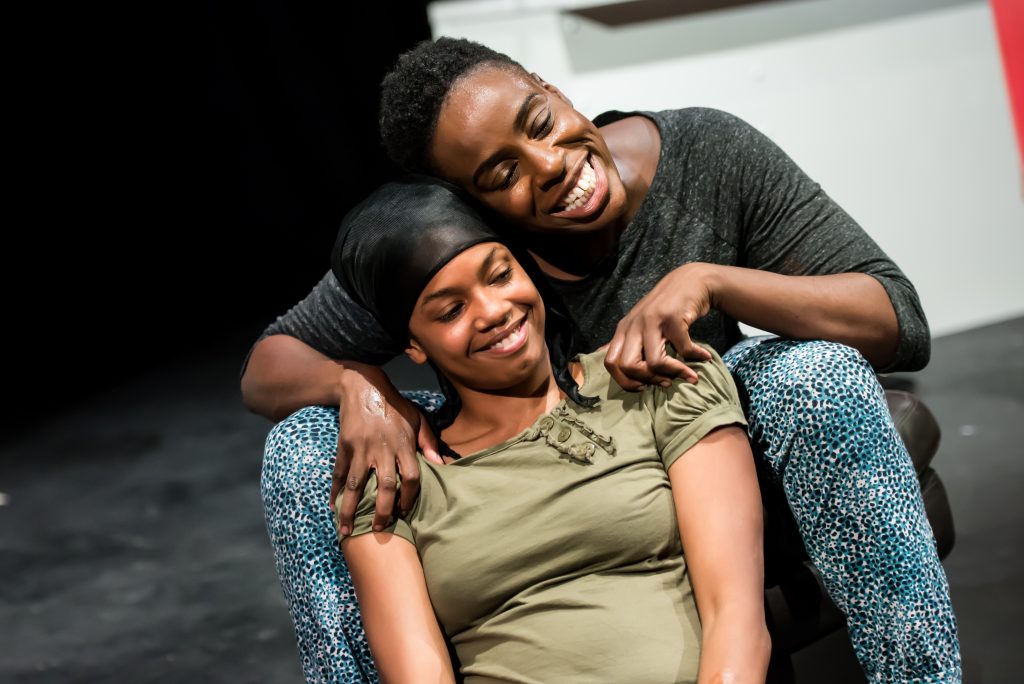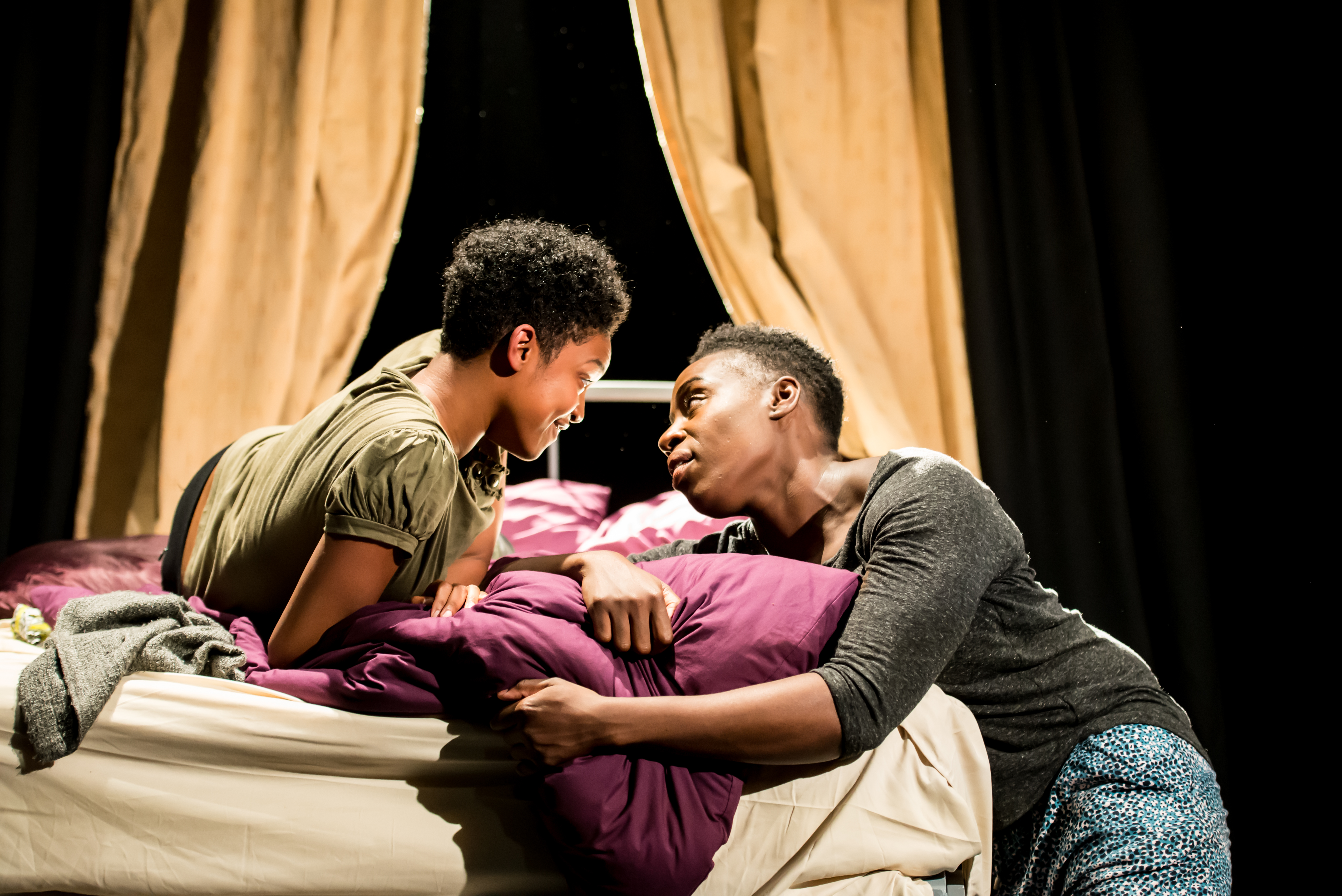 (3 / 5)
(3 / 5)
Futures Theatre is a small company that’s been quietly whirring away since 1992, under the auspices of founder and AD Caroline Bryant, producing incisive, important stories, made with women and about marginalised women.
I’d Rather Go Blind playwright Somalia Seaton has written a compassionate narrative about a mother, Michelle and her daughter Ruby. They play, dance, sing, like every mother and daughter, except they are not like every mother and daughter; Michelle gave Ruby up for adoption. The narrative doesn’t focus on why and how that adoption occurred, instead focusing on Michelle’s mental torture at the loss of Ruby.
Toyin Ayedun-Alase plays Michelle with expressive physicality, one moment she is robust; dancing joyfully, arms wide, buttocks wiggling merrily and at other moment shrunk to half her former size, a small lethargic lump, sheltering from the world under her duvet covers. Her ability to cope with the world is impaired. Somalia Seston’s text can be skillfully precise, with Michelle rapping out her hatred of the long-nailed neighbour who rummages around the bins and her dismissive feelings about Notting Hill carnival but Michelle’s background is roughly sketched, details are scarce – perhaps to maintain the audience’s non-judgemental sympathy – though a more interesting if difficult choice might have been to see all of Michelle, warts and all. A caseworker visits and suggests, she is doing very well after a spell we assume was spent in prion, learning new skills and getting a new job has been a struggle.

Ruby, a mercurial sprite played by Leona Allen, appears at birth, fully formed, she is 13, then 15 and as her 18th birthday approaches she becomes erratic and strange, yearning to break out of the confines of Michelle’s flat and also from Michelle’s imagination; this is not the real Ruby but Michelle’s imagined version of Ruby.
Scenes melt between naturalistic exchanges with empathetic caseworker Chrissy, played with subtle humour by Anna-Maria Everett to surreal and haunting wordplay between Michelle and her daughter. Maybe it’s just me, but it took me until about the midpoint of the show to realise Ruby was a figment of Michelle’s mind, which was probably a deliberate choice by director Caroline Bryant to create a sense of unsettling mystery – it worked but I would have liked to have had that clarity at a slightly earlier point and had more of the back-story about Michelle’s motivations for giving Ruby up.
This is an early, short run of the show and it deserves a transfer to let it breathe and speak to a wider audience.

